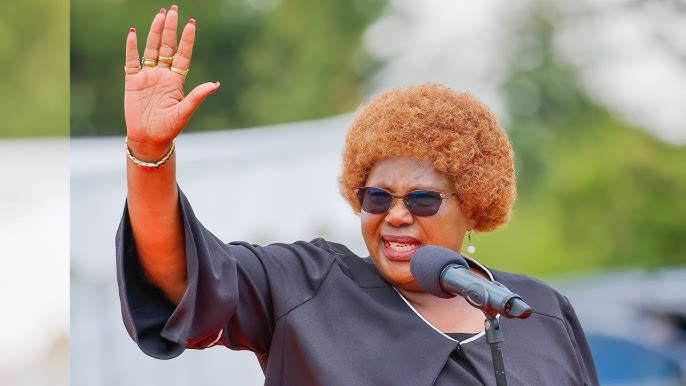Naivasha Member of Parliament Jayne Kihara was released on a personal bond of Sh50,000 on Friday after appearing in court over incitement-related charges. The embattled legislator, who was arrested on Thursday, did not take a plea as the court is yet to determine the legality of the charges brought against her.
The case, which stems from remarks Kihara made during a recent political rally, has drawn significant political attention. Wiper Party leader Kalonzo Musyoka and former Attorney General Justin Muturi were present in court to show solidarity with Kihara, who maintains that the charges are politically driven.
Leading the defence, Senior Counsel Kalonzo Musyoka argued that the charge sheet was defective and failed to outline any criminal offence. “The particulars of the offence do not indicate any offensive conduct. There are no abusive, threatening, or insulting words that would amount to provoking a breach of peace,” Musyoka submitted.
Lawyer Wanjohi, also part of the defence team, emphasized that prosecuting Kihara would infringe on her constitutional right to freedom of expression. “Speech alone is not conduct,” he said, urging the court to dismiss the charges on the grounds of insufficient legal basis.
The defence further pointed to a similar case involving Rose Njeri, who faced incitement charges and was later acquitted. They argued that Kihara’s matter falls within the same legal framework and should be treated likewise.
However, the prosecution, led by JV Owiti, opposed the deferment of the plea, insisting that the magistrate had jurisdiction to interpret the Constitution and allow the trial to proceed. “The charge sheet clearly outlines the offence. The validity of the case can only be tested during the trial when witnesses are presented,” Owiti submitted.
Magistrate Ben Mark Ekhubi deferred his ruling on the legality of the charges to July 29, 2025, at 11:00 a.m. Until then, Kihara remains free on bond.
The case highlights ongoing concerns over the politicization of legal processes and the balance between free speech and public order in Kenya’s political landscape.

